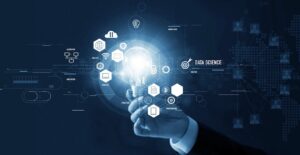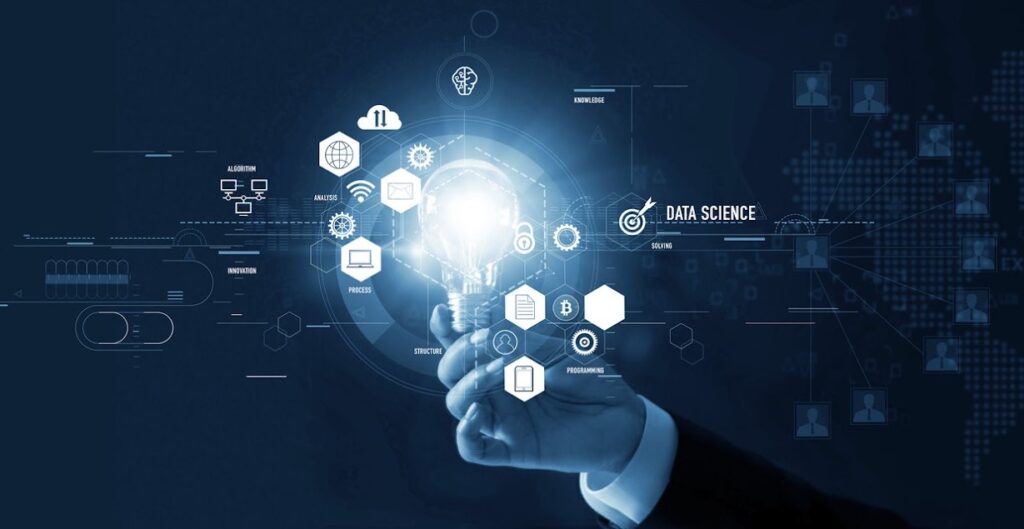Artificial intelligence (AI) is revolutionizing the world of data science, with its ability to analyze large volumes of data at an incredible speed. This has led to significant advancements in various fields such as finance, healthcare, transportation, and entertainment. As AI continues to evolve and become more sophisticated, it is predicted to have a profound impact on our daily lives in the years to come.
Machine Learning and Deep Learning
Machine learning (ML) has been one of the most talked-about topics in recent years, with its applications expanding across various industries. It involves teaching machines to learn from data science and make predictions or decisions without being explicitly programmed for it. However, with the emergence of deep learning, which uses artificial neural networks to process and analyze massive amounts of data, AI has taken a giant leap forward. Deep learning has proven to be highly effective in tasks such as image and speech recognition, natural language processing, and even playing games like chess and Go.
Natural Language Processing (NLP)
Natural language processing is the branch of AI that deals with developing systems capable of understanding and analyzing human language. With the rise of virtual assistants like Siri, Alexa, and Google Assistant, NLP has become an essential aspect of AI. These systems use NLP algorithms to interpret and respond to user commands or queries, making it easier for us to interact with technology.
Reinforcement Learning
Reinforcement learning (RL) is a subset of machine learning that involves training AI models through trial and error. The algorithms learn by receiving feedback in the form of rewards or punishments for specific actions, leading to self-improvement over time. This technique has been applied in various areas such as robotics, gaming, and autonomous vehicles.
Autonomous Systems
The dream of fully autonomous systems is becoming a reality with advancements in AI technology. Autonomous vehicles are being tested on roads, and drones are being used for delivery services. These systems rely on a combination of AI techniques such as ML, deep learning, and RL to make decisions and navigate their environments without human intervention. As these technologies continue to improve, we can expect more autonomous systems to be developed and integrated into our daily lives.
Ethical Considerations
With the growing influence of AI in our lives, it is crucial to consider the ethical implications of its development and use. AI algorithms are only as good as the data they are trained on, which can lead to biased outcomes. It is essential to ensure that these systems are developed with proper ethical guidelines in place to avoid discrimination and harm.
Neural Networks
Neural networks are designed to replicate the way the human brain functions, by allowing the AI to learn from observational data science. Each neuron within the network works simultaneously, processing the information and making the network as a whole capable of solving complex problems. It is this technology that powers the facial recognition feature on your smartphone or the recommendation feature on your preferred streaming service.
AI in Healthcare
One of the most promising fields for the application of AI is healthcare. AI can analyze vast amounts of data to identify patterns that humans might miss, leading to earlier diagnosis of diseases like cancer. Machine learning algorithms can also help predict patient outcomes, enabling healthcare providers to offer personalized treatments. AI can even assist in the development of new drugs, potentially reducing the time and cost of drug discovery.

AI in Finance
The finance sector has been quick to adopt AI, utilizing it for tasks such as fraud detection, portfolio management, algorithmic trading, and loan underwriting. AI can analyze market trends and make predictions with an accuracy level far beyond human capabilities. Furthermore, the integration of NLP in customer service has improved the customer experience, providing quick and accurate responses to queries.
AI in Education
In the education sector, AI can be used for personalized learning, where the learning experience is tailored to individual students’ needs. AI systems can track students’ progress and adapt content to their learning style, enhancing their understanding and retention of information. Furthermore, AI can automate administrative tasks, giving educators more time to focus on teaching.
AI’s Future Development
Looking ahead, AI’s development is likely to continue at a rapid pace. We can expect AI to become even more integrated into our daily lives, making our lives easier and more efficient. There are also exciting prospects for AI’s application in tackling global challenges, such as climate change and disease outbreaks.
Conclusion
In conclusion, the future of AI is full of possibilities. As we explore its potential, ethics must guide its use, considering societal and individual impacts. By steering its development, we can revolutionize healthcare, education, finance, and more. Let’s shape the future together, embracing AI and pushing its boundaries to improve our world. Remember, humans dictate its use and impact. The future is ours to make bright with AI by our side. Keep learning and exploring this exciting journey!
To read more articles visit Zara Nook


